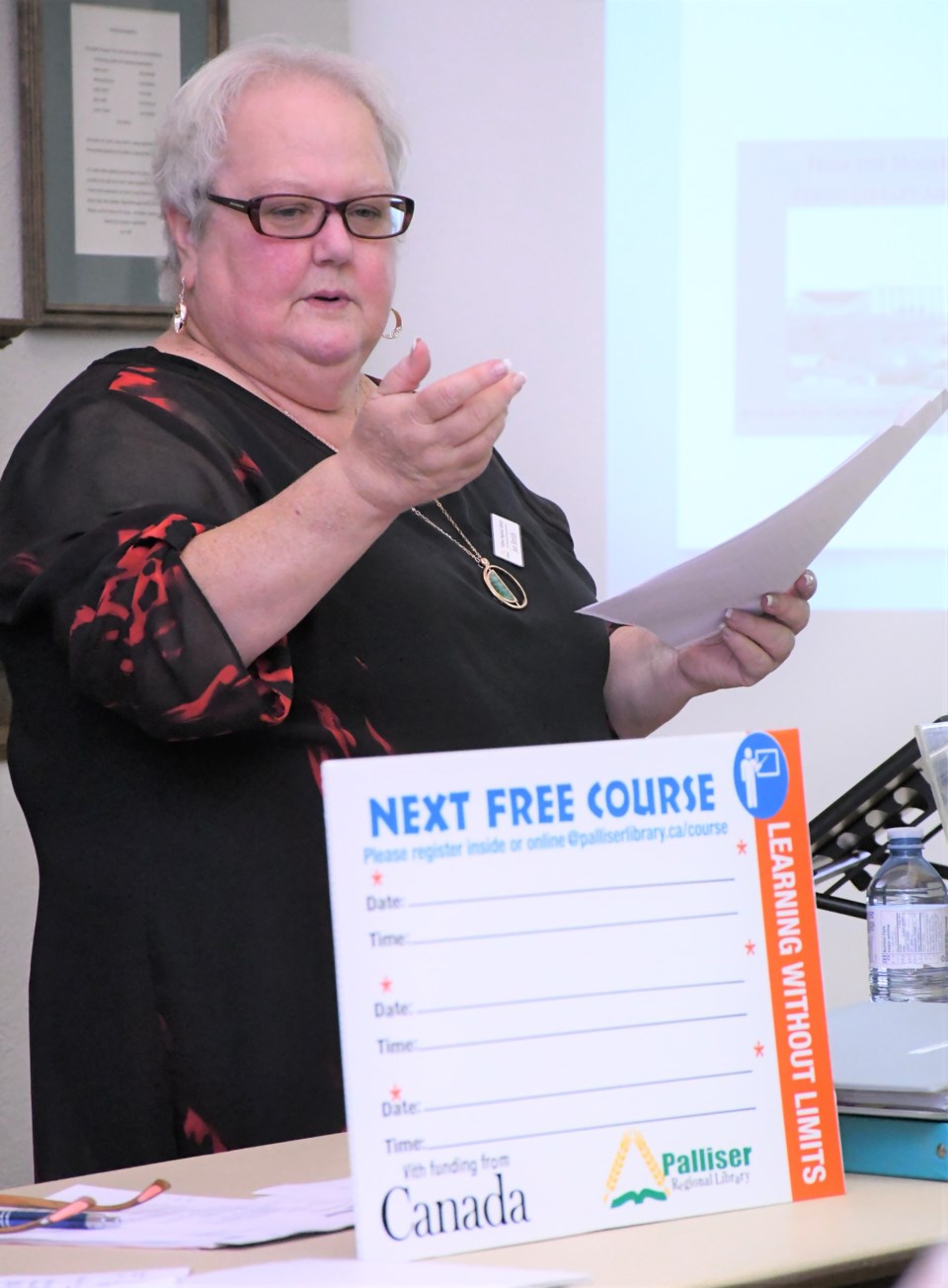When the coronavirus shut down the province in mid-March, Palliser Regional Library (PRL) was prepared after its director created a pandemic plan only weeks before that focused on providing online services.
Director Jan Smith began writing a plan at the end of January and had it ready by March. She then sent it out to all rural municipalities, towns, villages and library boards within the PRL area, so they knew what the organization’s plan was for the impending pandemic.
PRL activated the plan immediately on March 16 after the provincial government ordered all schools to close, Smith explained in a report that was part of the organization’s annual general meeting documents.
Within two hours of the provincial government shutting things down, the City of Moose Jaw also closed all recreational and library buildings, while the mayor of Davidson phoned Smith to ask what PRL’s plan was for the library there. He was relieved to hear the library would close the next day, she continued.
Library organizations throughout Saskatchewan shut down users’ ability to place holds on books, but they continued to move books that were already in the system during the next two weeks. Directors of regional libraries decided there would be no fines for any materials already signed out, while the due date would be May 1. They extended that deadline to May 31 and are looking at changing it again.
Smith pointed out in her report that she wrote it on April 15 and expected the pandemic situation to have changed by May 1, when the AGM documents were posted to the organization’s website.
“Information was sent out to all (PRL) branches on the 16th with the decisions made, their implications, and that we would be keeping them all on until the 14th (of April) while we tried to figure out things,” Smith wrote. “We were so naïve.”
Staff continued to work in the branches throughout March and were relieved the buildings were closed since they were concerned about students overwhelming the branches with schools closed. PRL headquarters made it clear that the public was not allowed inside and curbside drop-offs of materials were not permitted either.
“In this age of symptomless transmission, the level of contamination of books rates right up there with the toilet. People sneeze, cough, breathe and expel droplets and sweat on almost every page,” said Smith. “And as of April 15, we still do not have a good measure of how long the virus can last on or in a book cover or on its paper, hence the mandated stop in service.”
Staff activities included writing and submitting statutory declarations, annual reports, financial statements, and collection inventory, while all branches performed housekeeping activities. Rural branches also discussed programming and gave PRL HQ a list of volunteers who ran coffee circles, baby lap time, and other programs that PRL hoped to continue running online.
Palliser purchased 10 Zoom licences for programming and bought a program called Niche for online courses. The Moose Jaw branch produced YouTube videos for children and young adults, while it worked on more videos for all age groups. The branch hopes to use Zoom for its book clubs and knitters’ club.
The City of Moose Jaw sent PRL information about a federal supplemental unemployment benefits (SUB) plan, for which PRL applied after its executive committee and union gave permission on April 3, said Smith. Much to PRL’s surprise, the federal government approved the organization’s plan a day later.
This plan allows PRL to top up EI payments to 95 per cent of employees’ regular pay without deducting anything from their EI payment. PRL sent out layoff notices on April 25 to its staff since it feared it wouldn’t have a plan in place by them.
Most PRL employees earn minimum wage to $20 per hour and need the support to make it through the forced closures, Smith added. The organization expects to apply any savings incurred through the rural levy against the 2021 rural budget.




